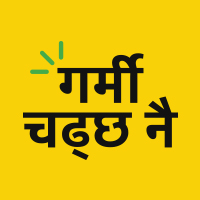Karate charioteer
We use Google Cloud Translation Services. Google requires we provide the following disclaimer relating to use of this service:
This service may contain translations powered by Google. Google disclaims all warranties related to the translations, expressed or implied, including any warranties of accuracy, reliability, and any implied warranties of merchantability, fitness for a particular purpose, and noninfringement.


In the last 6 months, Nepali Karate has achieved one success after another. The medals won in four major international competitions since last October is a historic success for Nepali Karate. During this period, Nepali karate won silver in 19th Asian Games, 1 gold, 3 silver and 5 bronze in 10th Sitorio Karate World Championship (Jakarta), 1/1 gold and silver in USA Open and Junior International Karate Championship and 30 gold in 7th South Asian Karate Championship. , 24 silver and 7 bronze medals have been brought in.



The main credit for this success goes to Kushal Shrestha, the head coach of the Nepali karate team. Another name associated with these successes is Erica Gurung. Erica won a silver medal at the Asiad held in Hangzhou, China. It is the first big medal won by Nepali Karate in the Asian Games. It revived the reputation of Nepali karate. Erika also won gold at the Citorio World Championships and the USA Open. Nepal won gold for the first time in both competitions. Winning the most medals in the 7th South Asian Karate held in Nepal is another proud history.
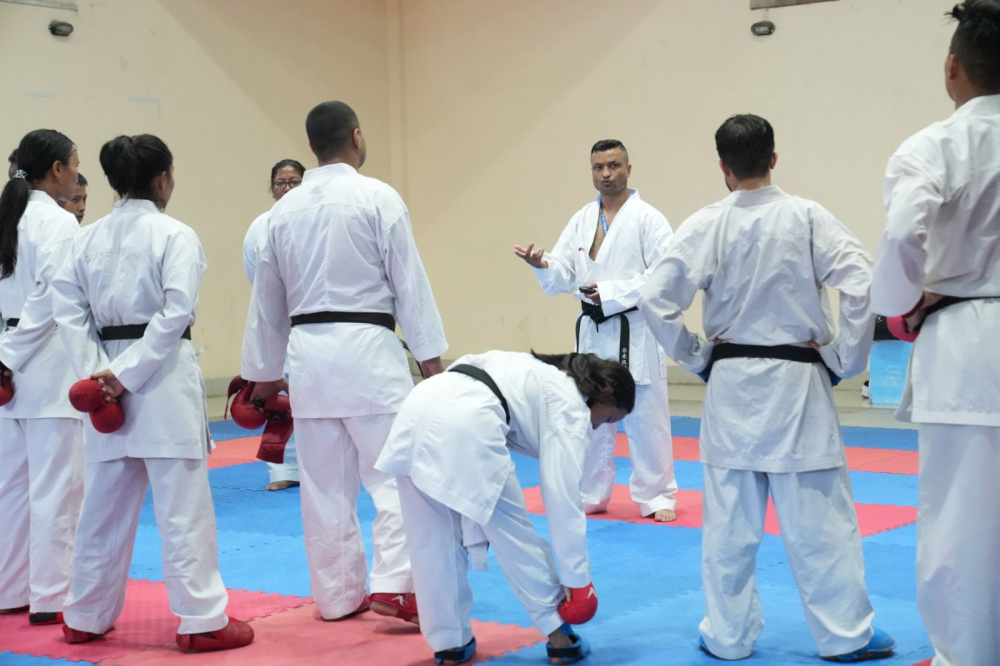 The 41-year-old skilled karateka is proud to be associated with all these historic successes. "I got this opportunity in the history of Nepali Karate. Everything may have been mixed in it, the pain of the players, the hard work of the coach, the role of the Nepal Karate Federation, the National Sports Council,'' he says, 'but, I have reached a place where everyone gets credit. With that, it is natural to feel proud when the results come.'
The 41-year-old skilled karateka is proud to be associated with all these historic successes. "I got this opportunity in the history of Nepali Karate. Everything may have been mixed in it, the pain of the players, the hard work of the coach, the role of the Nepal Karate Federation, the National Sports Council,'' he says, 'but, I have reached a place where everyone gets credit. With that, it is natural to feel proud when the results come.'
Kushal has worked as a head coach in the national karate team since Asiad trip. He took the karate team to China after making it successful in Indonesia before Asiad. He has been associated with the national team since 2016. He was also a member of the training team when Nepal won 10 gold, 4 silver and 5 bronze medals in the 13th South Asian Games. Apart from that, his name is associated with the success achieved in many international championships.
is also a good player. He has medaled in three editions of the South Asian Games (SAG). Only he has drawn that history. He has won four medals in three editions. He won a silver medal in the ninth green in Islamabad in 2004 and won gold in the Colombo green in 2006. 11th Dhaka Sag won bronze in both Kumite and Kata in 2010. He is the only athlete to win medals in both categories of official international competitions.
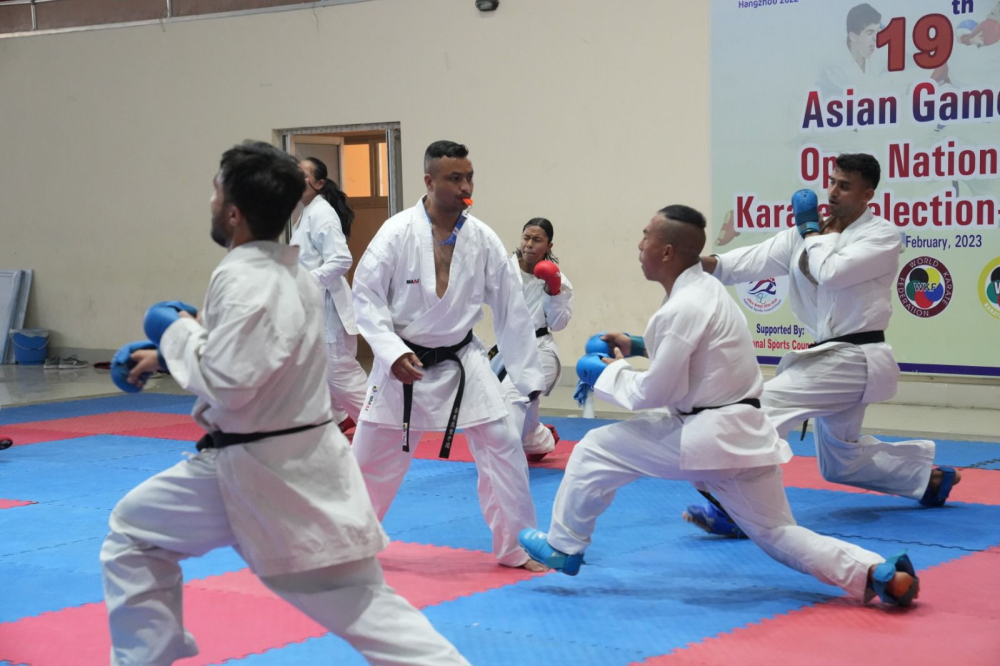 Kushal, who has participated in dozens of international competitions including two Asian Games (Doha 2006 and Guangzhou 2010), World Championship, Premier League of WKF, AMA International Open Championship in UK in 2012 and Sukokai Open Championship in Australia in 2016 is also special. He is the sixth black belt awardee. But he is more satisfied with his success in his coaching career than as a player.
Kushal, who has participated in dozens of international competitions including two Asian Games (Doha 2006 and Guangzhou 2010), World Championship, Premier League of WKF, AMA International Open Championship in UK in 2012 and Sukokai Open Championship in Australia in 2016 is also special. He is the sixth black belt awardee. But he is more satisfied with his success in his coaching career than as a player.
'Winning as a player is person-centered. But as the success achieved by being a coach includes many aspects from the players, it gives more satisfaction," said Kushal. He is also the head coach of karate for the National Sports Council's 'Mission 2026'. Karate's goal in this Asiad mission will be to win more medals including gold. For that, he has also advanced the work according to his training plan.
Kushal was born in 2039 in Dhankuta. Ancestral house is Birgunj. Both paternal grandparents (Deepak and Harimaya) were employed in Dhankuta for the 'Save the Fund UK' programme. Later he became a resident there. His house is near Dhankuta Tundikhel. When Tundikhel used to be karate. Half of the match was covered by karate players. Kushal's brother also played karate. The same atmosphere also led Kushal to karate.
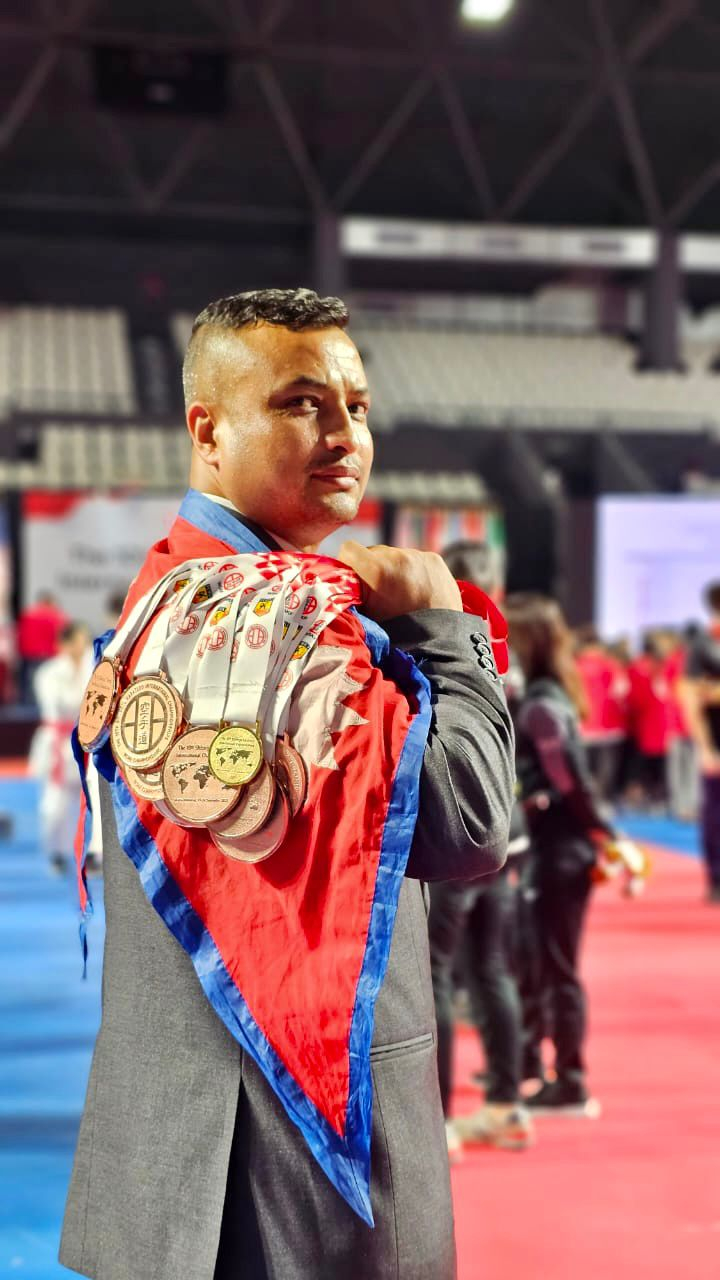 Since 1949, his signature has been associated with karate. The craze of karate was such that it was impossible to get away from it. When a group of players dressed in white were walking in the market in the morning, there was a lot of buzz that I would also go,'' he recounted the moment when he entered karate, 'but I was not allowed to play from home. I was physically small because I was born at seven months. It meant that parents' wishes should focus on education.'
Since 1949, his signature has been associated with karate. The craze of karate was such that it was impossible to get away from it. When a group of players dressed in white were walking in the market in the morning, there was a lot of buzz that I would also go,'' he recounted the moment when he entered karate, 'but I was not allowed to play from home. I was physically small because I was born at seven months. It meant that parents' wishes should focus on education.'
But Kushal didn't agree. Continuing to learn, he won a gold medal in the 25 kg weight category of the Kids Championship in Dharan. Then the attachment to it increased. Kushal completed his graduation from Dhankuta Multipurpose Campus. Also completed CMA from Dhankuta Institute of Health Sciences. After coming to Kathmandu, he did his postgraduate studies. Kushal, who has been promoting studies and sports together, has been forced to put his studies on hold due to having to devote more time to training.
Being brought up in the 'Lahure' culture, Kushal also had the guts to become the Lahure of Ekta. Also fought for the British Army. In the beginning, they were selected from Galla, Yaro and reached Pokhara. Fail when you get there. Suffered the same fate three times. Luck will not be written in Lahure. He has no regrets about not being in Lahure now. Although he did not become Lahure, Kushal became Lahure's son-in-law. He married Tara Gurung, daughter of Lahure. Tara is also a national karate champion. She has won all the national tournaments she has played in. Tara, who started working as a coach before Kushal, is still a coach.
together players, together coaches. The two also played together in the 2010 Guangzhou Asiad. By the time they got married. "It was unfortunate for us to play Asiad as a couple, we were the first couple to play Asiad. That is an achievement for us. Both of them feel that life is a little easier since they are in the same field. He says, 'There is a lot of similarity when there is one field. One can understand each other's feelings and problems. Apart from playing in tournaments in dozens of countries including America, Australia, Canada, France, Britain, and Japan, Kushal, who has become a coach, has also accompanied stars in many countries.
The Elite Coaching Course was held in Kathmandu in 2016 under the plan of the then Rakep Member Secretary Yuvraj Lama. 70 coaches participated in 25 matches. Expert trainers from different countries came and gave training. Kushal was the topper in that. After that, he was given the responsibility of coach by the Karate Federation. In Kushal's experience, one not only plays the role of a coach, but also plays the role of manager, doctor, family, dietician, mentor, psychiatrist. However, now team games are starting to employ experts in different roles. In the experience of
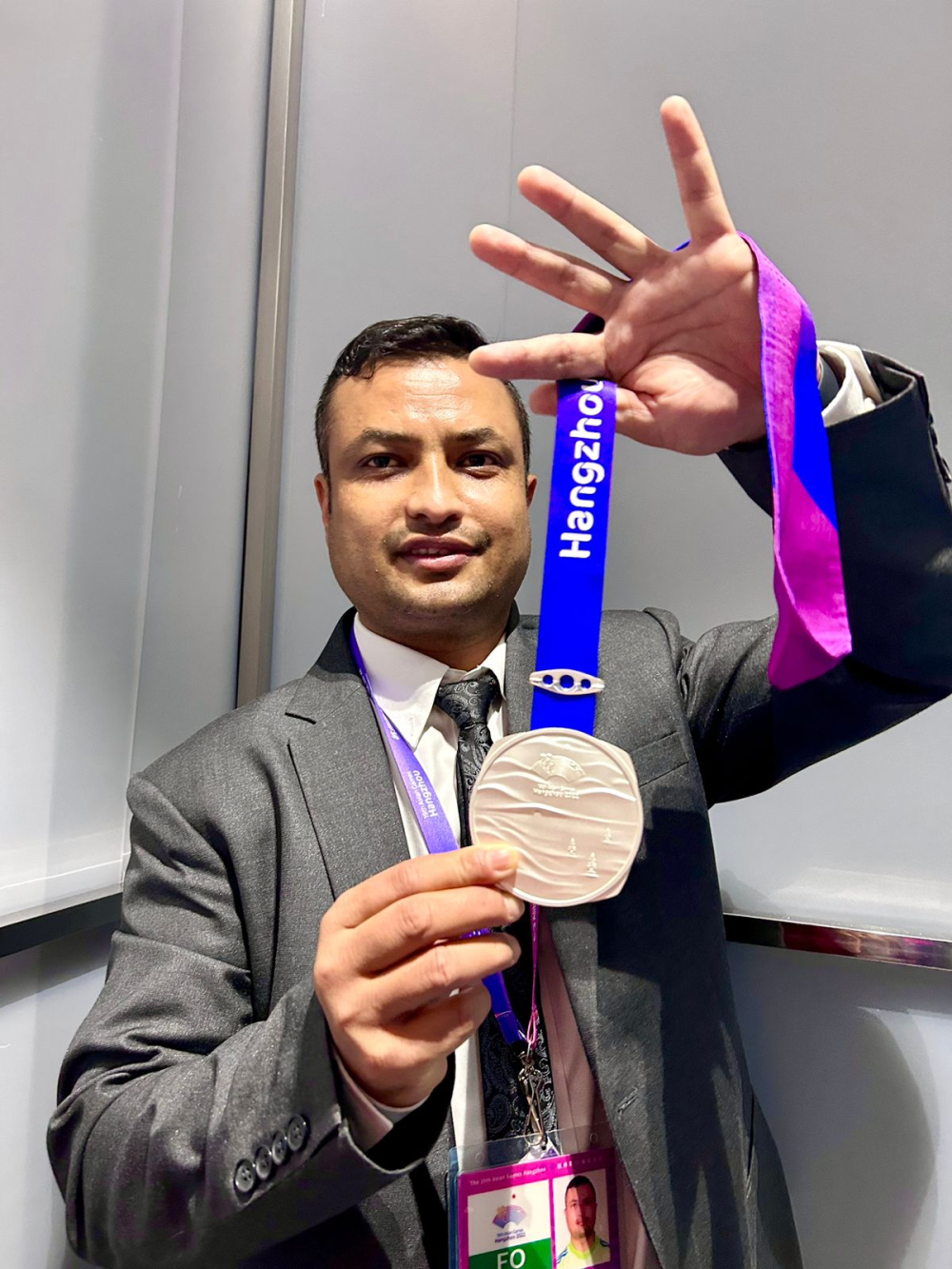 Kushal, training is the most challenging profession. "Winning, applause of the players, losing all because of the coach. They go as far as saying that they have not been properly trained," he said. My theory is that even if the player wins, the role of the coach should be judged and if the coach loses, the coach should also be responsible.' Another problem, he says, is that it becomes difficult to sustain the players after working hard at the junior level to reach the national level. He argues that many national level players can be maintained only if the government arranges compulsory sports teachers in every school. He also complains that the prize money received by the
Kushal, training is the most challenging profession. "Winning, applause of the players, losing all because of the coach. They go as far as saying that they have not been properly trained," he said. My theory is that even if the player wins, the role of the coach should be judged and if the coach loses, the coach should also be responsible.' Another problem, he says, is that it becomes difficult to sustain the players after working hard at the junior level to reach the national level. He argues that many national level players can be maintained only if the government arranges compulsory sports teachers in every school. He also complains that the prize money received by the
coach is very low. "The success and failure of the player is all about the coach. However, the view of the coach is different. The award process is very uneven,” he says. According to the procedure, the players who win the silver medal in Asiad get 19 lakh 50 thousand, the head coach gets 2 lakh 34 thousand, two assistant coaches and the manager get only 1 lakh 95 thousand.
The 12 players of the bronze-winning women's kabaddi team will receive 390,000 each, the head coach will receive 260,000 and the assistant coach and manager will receive 130,000 each. And 130,000 has been fixed for the team manager.
प्रकाशित : जेष्ठ १०, २०८१ ०९:२४






















